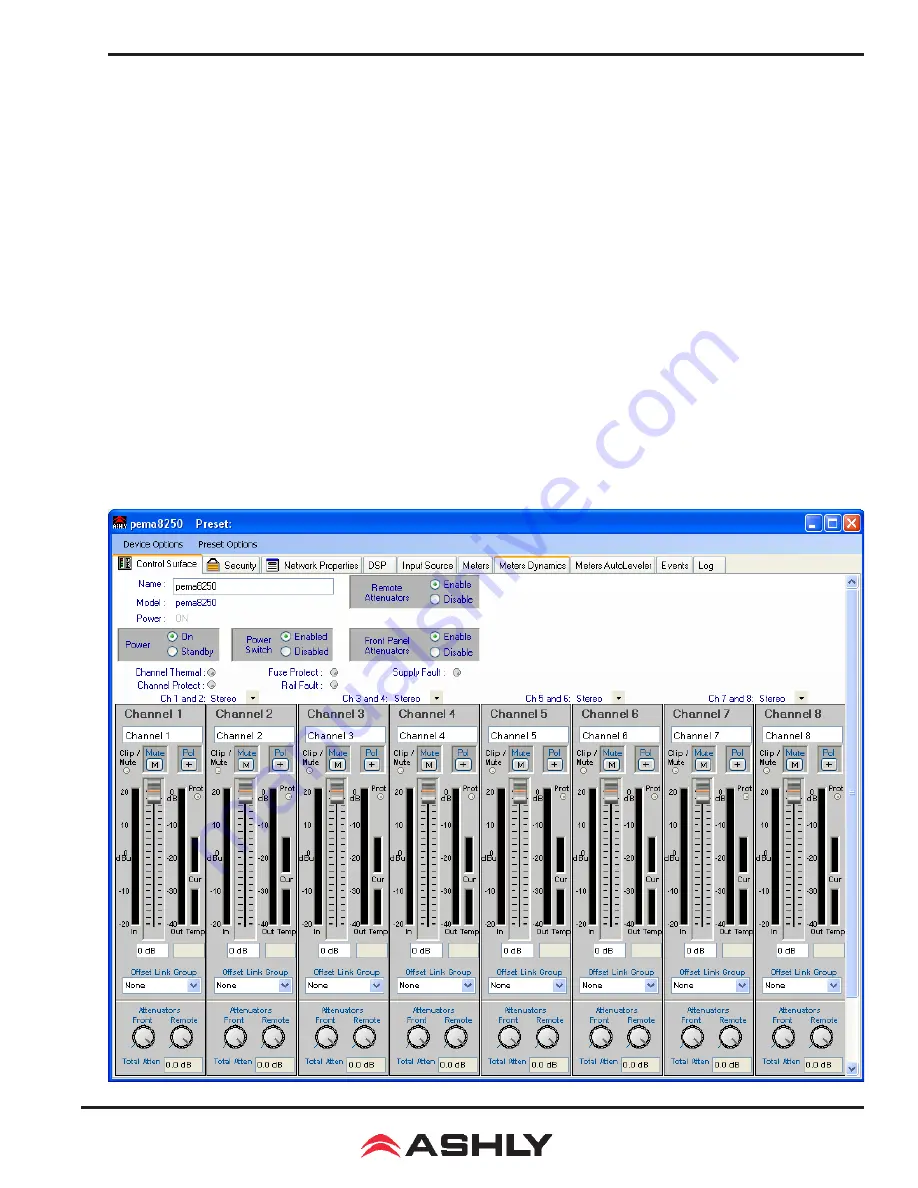
9
Operating Manual - Pema Protea Equipped Media Amplifier
been formerly installed but are currently off-line or unavailable are highlighted in red. Individual devices can be dragged onto
the project canvas to simulate physical rack installation groups. Editing each device can be done from either the device tree or
from representative icons on the canvas. All changes made in software are executed in real time on the device.
The software scans for active devices on start-up. The user can manually scan at any time as well with <Scan For Devices>
at the bottom of the network device tree. All devices broadcast their availability to the software when they start up.
In addition to detecting which models are currently online, any factory installed options within each amplifier are detected.
In the case of Pema amplifiers, EtherSound or CobraNet are the only options available. The software control surface for each
device automatically displays available controls for installed options.
Note: The user can find and verify a single physical
device on the network by right clicking over the unit’s name in the drop down menu or picture on the canvas, and then click
<Identify>, which will flash the Com LED on that unit’s face panel for two seconds.
The project canvas is used to visually represent and control a fixed physical sound system installation, and can display
any of the networked Ashly processors, amplifiers, and remotes used in that system. The user can also place an assortment of
isolated control objects such as level faders, single LEDs, meter bars, etc, and map them to specific product functions within
that project. Once a control object is placed using <Add Items>, right click on the control object to bring up its properties.
Lines, rectangles, text, even image files can be added to create a custom virtual control screen along with individual devices and
control objects and be saved in the project. To see all available canvas tools, right click anywhere over open canvas. Check-
ing <Design Mode> allows placed objects to be moved around, while unchecking <Design Mode> locks all objects in place.
Once
Protea
ne
software is installed and the targeted devices have been identified on the network, a new project can be cre-
ated. A project represents the physical hardware installation and all device settings, Individual device properties are accessed
in the device control window (shown below) by double clicking on the specific Pema device, either in the menu tree to the left
of the project canvas, or the project canvas device icon
Pema 8250 Main Device Control Window










































